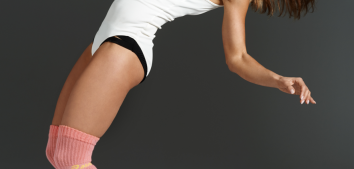
THE ROAD TO HEALTH: Do challenges help us develop new HABITS?
Do you remember when you were kids and your parents had to make sure that we brushed our teeth every day? Thanks to this, today we do not have to think about it, we just grab the toothbrush and it seems so obvious. This is how they developed a mechanism in us that we call a habit. In the series “The Road to Health. Do you know that…?” we will try to find out whether challenges can help us build new habits ?
One of the basic tasks of our brain is to ensure the survival of the entire body, and thus it tries to minimize energy loss for individual activities. This is why we have developed processes that allow us to automate regular and repetitive actions. Habits are extremely valuable to the functioning of our body because they do not require us to think or make decisions. Thanks to this, our awareness is not burdened and we can focus on other activities, situations or reactions. Interestingly, up to 40 percent of the decisions we make every day are unconscious!
A habit is made up of three components: a cue, a routine, and a reward. For example, the end of breakfast may constitute the cue for tooth brushing. This is followed by the routine, i.e. going to the bathroom and brushing your teeth. As a reward we get the fresh feeling which for many people is essential before they leave the house. This is how powerful a habit can be.
Habits are the perfect mechanism that you can use to start a healthy lifestyle! We are able to change every bad habit, such as smoking, having a few drinks before falling asleep, ordering fast food or spending weekends watching TV, or develop a new one in its place.
The average time needed for the behavior to become a habit is 66 days. Of course, this is an individual matter. For some people less than three weeks will be enough, others will need up to three months to work out the mechanism. It has been proven, however, that even if a behavior hasn’t become our habit yet, it will still be easier to perform it on the thirtieth day than on the first one.

The easiest way to build a habit is to find a cue that will immediately condition our new habit or change the unhealthy one, e.g.:
- IMMEDIATELY after waking up ➡ I have water with lemon.
- ALWAYS before work ➡ I have breakfast at home.
- STRAIGHT AFTER work ➡ I go for a run.
- During EVERY break at work ➡ I drink healthy juice instead of smoking a cigarette.
- ALWAYS before dinner I do 10 ➡20 ➡30 squats.
Thanks to this, we will be able to create repeatability of a given behavior. As a reward – at the very beginning – it is worth accepting the feeling of satisfaction after completing the task. Rewards such as a piece of pizza, a donut or chocolate will be treated by our brain as a bribe, so it’s better to avoid them.
One of the best ways to develop a new habit is to participate in group challenges, such as my #FIGHTERCHALLENGE. Together with my followers, we all work on the routine of regular physical activity. Each challenge is aimed at getting us used to performing a specific activity on a regular basis and, consequently, developing a repeatable process that does not require making a decision.
When we get on the path to a healthy lifestyle, it is worth using the method of small steps and introducing each new habit in turn. For example: let’s focus on daily physical activity first. Only when we perform our workout, brisk walk or an evening run automatically, even on the worst day (because even on the worst days we brush our teeth), can we try to introduce another one, e.g. drinking a healthy green smoothie after waking up.
In the whole process of developing a routine, the most important thing is to be aware of its existence, to use it to achieve your goal, and transform it to your own benefit. Either way to a healthy lifestyle is good, but the one that uses habits may turn out more effective ?
Bibliography:
- Charles Duhigg. Siła nawyku, PWN 2013
- European Journal of Social Psychology
- Luda Kopeikina. Stop the Indecision: How to Eliminate Bad Habits that Cloud Your Thinking









Comments No Comments
Join the discussion…